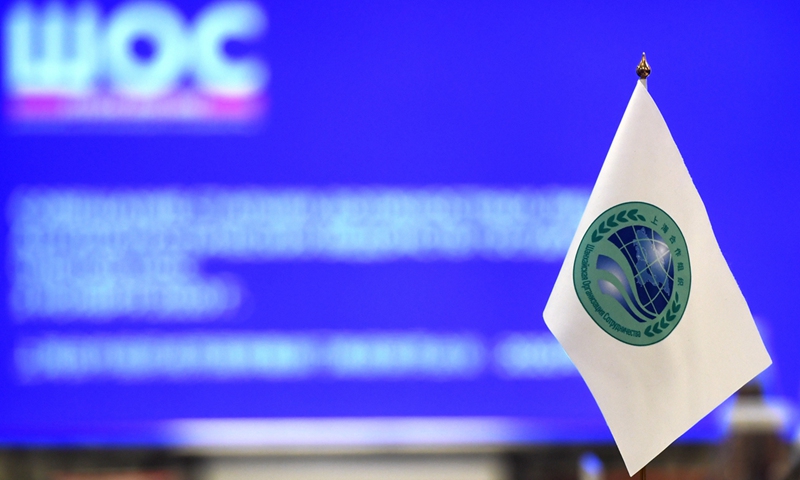
Shanghai Cooperation Organization (SCO) File photo
This year marks the 20th anniversary of the establishment of the Shanghai Cooperation Organization (SCO), and the intergovernmental organization is expected to see another expansion by granting the status of dialogue partners to Saudi Arabia and Egypt, a decision that was approved at the recent meeting of the SCO Council of Foreign Ministers in Dushanbe, Tajikistan.
The decision will be submitted to the Council of Heads of Member States, the top decision-making body in the SCO, for approval, Russia’s Sputnik News reported, citing Tajik Foreign Minister Sirojiddin Muhriddin.
As an organization representing the largest and most populous region in the world with eight member states, four observer states and six dialogue partners from Asia and Europe, the SCO has been inclusively promoting regional security and development in the past two decades. Based on the trend of enhancing regional integration, the organization is expected to help boost the post-COVID recovery and stable development.
Economic cooperation is one of most important pillars of the framework, through which regional security can also be effectively promoted. Facing the rushed withdrawal of US and NATO forces from Afghanistan, the continuing spread of the coronavirus as well as the West’s accelerating hegemony, it is crucial for SCO participants to accelerate the layout of cooperation for common development and improve the industrial chain connection of the region.
Though the international economy has been battered by the global health crisis since last year, economic exchange among SCO members has shown strong resilience. For instance, China-Europe freight trains not only delivered epidemic prevention materials, but also greatly boosted cross-border trade since the outbreak.
A China-SCO local economic cooperation demonstration zone was set up in Qingdao, East China’s Shandong Province in 2018. Benefiting from unique geographical advantages and the continuous optimization of the port business environment, it has effectively connected the international logistics of sea, land, air and railways.
During the first five months this year, trade between China and Central Asian countries reached $16.86 billion, up 24.5 percent year-on-year. A multimodal transportation center in Qingdao recorded 297 trips by China-Europe freight trains, among which 243 linked China and Central Asian economies, up 57 percent. The freight trains also opened a portal for SCO members to enter the Asia-Pacific market.
Alongside the promotion of the China-proposed Belt and Road Initiative (BRI), investment among the SCO participants has also surged. For instance, China has become the largest source of investment for Tajikistan, with an accumulated investment exceeding $2 billion, covering areas from mining and textiles to telecommunications.
More importantly, the economies under the SCO have huge potential to further explore cooperation in emerging areas, such as new energy, digital trade and the health industry.
During the pandemic, cross-border e-commerce expanded rapidly in the region. Data released in April showed that Alataw Pass in Northwest China’s Xinjiang Uygur Autonomous Region saw the delivery of over 50 million e-commerce packages worth $140 million since cross-border e-commerce was launched last year.
As the global economy marches into the post-pandemic era, SCO members’ cooperation shows increasingly promising prospects. Countries are expected to deepen the alignment of their development strategies and achieve more sustainable and resilient development, especially against the backdrop of US-led efforts to obstruct the global industrial chain in order to maintain its own hegemonic position.
The article was compiled based on an interview with Wang Yiwei, director of the institute of international affairs at Renmin University of China. bizopinion@globaltimes.com.cn
